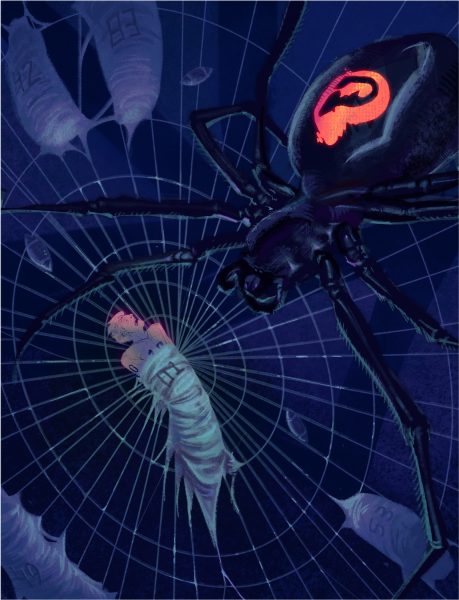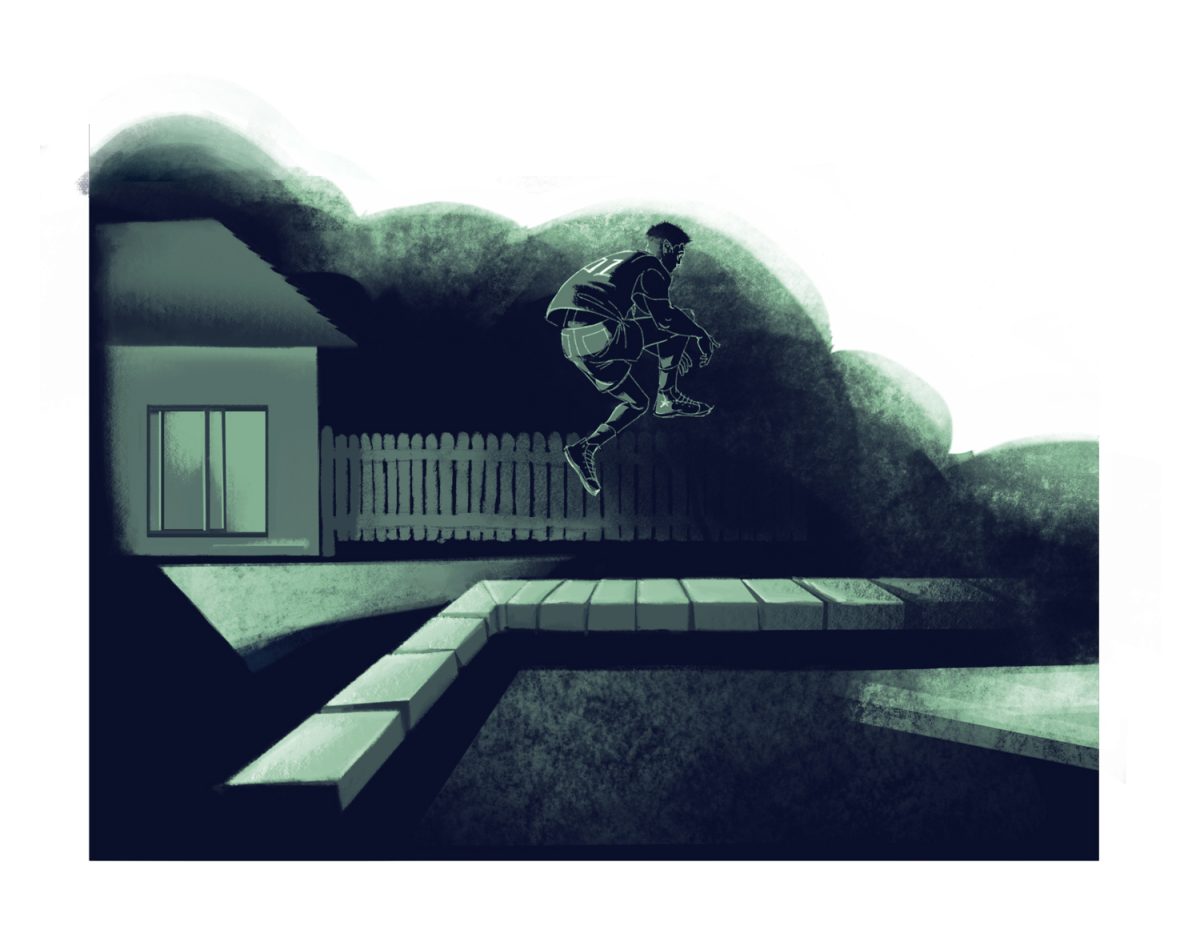It all started when I was 15, just a sophomore in high school, completely unaware that one simple conversation was about to change my life. It was a regular morning in October 2021, during the pandemic years, and I was logged in to my online classes. My uncle called me, casually asking which teams I thought would win the NBA games later that night. I asked him why he wanted to know, and he told me that if I helped him predict six games correctly, he would win over $1,000. He said he’d give me half the winnings.
I was young, eager to impress and intrigued by the idea of turning my sports knowledge into something more than just a hobby. Little did I know that phone call would set the stage for a sports betting addiction that would consume my life for three years to come.
I sent my uncle my final predictions, and he sent me a screenshot of the betslip that read “6 team parlay to win $1,200.” The bet was on. I decided to cancel my plans with friends for the day. All I wanted to do was to watch the games. One by one, I watched the first five games match my correct predictions and felt a rush of adrenaline each time. Reality hit me when I realized that I was one game away from winning more money than I had ever made before.
The final game tipped off and my eyes were glued to the TV screen, hoping and praying that I would win. I needed the Lakers to beat the Warriors to cash in big. Slowly, that rush started to deflate as the Lakers came out completely flat and lost the game. The bet went five out of six, just one game off. I was devastated, and my heart completely sank. But that’s not the feeling that stuck with me. The same rush of excitement I had felt before the game lingered, and I was confident that I could win the next. So, I texted my uncle, asking him how I can open my own sports betting account.

Sports betting is a growing trend across the United States. According to the National Conference of State Legislatures it has now been legalized by 38 states, and 30 of them allow bets to be placed directly from a mobile phone, making it easier than ever to place bets. According to Statista, there were approximately 25.02 million online sports bettors in the United States in 2022. This figure was forecast to rise to 36.9 million by 2025. According to the Independent Florida Alligator, a 2023 National Collegiate Athletics Association survey found that online gambling has seen a surge in young bettors revealing that 58% of 18 to 22-year-olds had placed at least one wager that year. The NCAA also reported more than 40% of people pursuing college degrees placed bets on their own school’s team.
Growing up, sports were a huge presence in my life. I played travel basketball throughout my childhood and played a few seasons of high school football. I was always a fierce competitor and hated losing more than I liked winning. If I wasn’t playing sports, I would be watching pro sports and absorbing every team across the league, memorizing the players and their stats. This deep connection to sports and the competitive spirit I built up helped lay the foundation for me to become addicted to sports betting.
The day after my heartbreaking loss, I opened my own account through an online bookie and got to work. This time, I focused on the slate of NFL games for the upcoming weekend. After hours of research on the injury report, the ESPN app and betting apps that offer statistics, I finally put together a six-leg parlay where I was risking $150 with the possibility of winning $2,100.
Sunday finally came around. While I would normally sleep in and have a slow breakfast, I woke up earlier and immediately got on the ESPN app to remind myself what time the games started. The first game was set to start in 10 minutes, which left me no time to eat breakfast. I felt a huge rush of anticipation as I made my way to the living room and passed my whole family as they ate. My mom asked me if I wanted to join them, I told her I wasn’t hungry and I just wanted to watch the games. As the games unfolded, everything seemed to align perfectly. Each pick hit one after another. The last game came down to the Cowboys vs. Chargers. The Cowboys needed to win for me to get that $2,100.
The game went back and forth, but ultimately the score was tied 17-17, and victory was closer than ever. It was around 4 p.m. and I had been sitting on the couch since 10 a.m. still yet to eat anything that day. As the field goal team went out to attempt the kick, I stood up as close as I could to the TV, my palms sweaty, my mind filled with anxiety and hope. Then, the ball sailed through the uprights, and I jumped up in disbelief. I ran through the back door and immediately leaped into the pool with all my clothes on.
I had won $2,100 just from watching the NFL.
I started betting on sports every single day, practically 24/7, chasing that winning feeling with every bet I placed. I’d wake up and the first thing I would do was grab my phone and check the games that were scheduled for the day so I could place bets before even getting out of bed. It didn’t stop there. When we went back to in person school the next year I would consistently bet during school, watching the games on my Chromebook in class. I’d ask to use the restroom and instead go to see what bet I’d place next.
After school I’d go home and sit on my couch, once again glued to the TV. I anxiously watched my predictions for the night unfold. But it didn’t end there. I found myself placing bets on sporting events in other countries before I went to bed. Chasing the feeling of excitement no matter the time zone. Some of those nights, I would have nightmares and suddenly wake up to check if I had won my bet, only to see that I had lost. Losing made me unable to fall back asleep, ruining my next day before it even started.
As of 2025, sports betting remains illegal in California despite the growing push for legalization. In 2022, Proposition 26 and Proposition 27 were on the California ballot, in hopes of legalizing sports betting in the state, but both propositions failed to pass. Even though it is still illegal, there are many loopholes around it. Online bookies and a few apps including Underdog and Prize Picks label themselves as “Daily Fantasy Sports.” Fliff, which operates as a sweepstakes gaming platform, allows it to function in states where traditional sportsbooks are not legal.
As the days passed, the amount I risked kept climbing, eventually reaching $2,000 a day on straight bets. After winning weeks, I made sure to post my payouts on social media. I’d splurge on new shoes, expensive clothes, and treat myself and others to meals at whatever restaurants we craved.
One week I was up $3,300 and didn’t record a single losing day. My winnings ranged from $255 to $700 every day. The very next week I tried to double down and make $6,600—that was a terrible idea. I ended the week down $5,000, not recording a single winning day, and lost between $430-$1,150 each day.
As the losses piled up, it started to become less about money and more about my mental health. I was losing my self-esteem, and it was clear that the highs of winning were not worth the extreme lows of losing. What was once a way to pass the time turned into something much darker. I spiraled deeper into the addiction, digging myself into a deep hole.

On losing days, I didn’t want to do anything. The disappointment was enough to make me cancel plans with friends and family. My close friends knew about my constant losing streak and repeatedly urged me to stop, but I never listened. There were times I backed out of dinner plans, fearing that if I lost my bets, I wouldn’t be able to afford a meal.
Eventually, losing cost me valuable friendships. I pushed people away, not wanting them to see how much I was struggling. My entire mood for the day would depend on if my bets won or lost.
Sports betting is heavily promoted through commercials and online ads which makes it easier for anyone to get addicted. Sports betting companies continue to promote betting by using strategies such as risk-free bets, celebrity endorsements and advertising campaigns to attract customers which makes it even more likely that people will hop on the trend. The National Council on Problem Gambling estimates that approximately 2.5 million adults in the U.S. are severely addicted to gambling, and another four to six million people have mild to moderate gambling problems. According to NBC news, gambling addiction hotlines say volume is up as of February 2023 and callers are younger as online sports betting booms.
I finally reached a turning point in my life where I realized it was now or never to let this addiction go. I had just turned 18 and adulthood was right around the corner. In March 2023, I was just two months away from my high school graduation. I was dealing with heartbreak and my counselor called me into his office with my grades on his computer as he pointed out my 20 missing assignments in English. He told me I was at risk of not graduating. Something clicked in my head and in that moment, I realized that the mounting losses and damage to my relationships became too much to ignore. Removing sports betting from my life was the first step I had to take to get my life back together. I started by deleting all sports betting apps from my phone and unfollowing sports betting related pages on social media.
I got a real job at a restaurant, something steady that didn’t revolve around the unpredictable chaos of betting. I began saving my money and thinking about my future. After a while, the thought of sports betting hardly ever crossed my mind. My mental health was slowly improving, and soon enough I was able to watch sports games without feeling like I needed betting to enjoy them. Letting go of this addiction paid off when I walked across the stage, making my parents proud. It meant even more to my family because my parents had me at a young age, and my dad never had the chance to graduate high school. I wanted to do it for them.
This appeared in the Summer 2025 print issue of Inside Fullerton.



